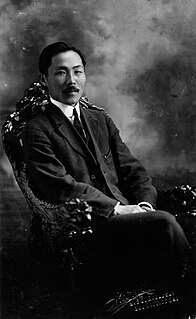 W
WAhn Changho, sometimes An Chang-ho was a Korean independence activist and one of the early leaders of the Korean-American immigrant community in the United States. He is also referred to as his pen name Dosan. A protestant social activist, he established the Shinminhoe when he returned to Korea from the US in 1907. It was the most important organization to fight the Japanese occupation of Korea. He established the Young Korean Academy in San Francisco in 1913 and was a key member in the founding of the Provisional Government of the Republic of Korea in Shanghai in 1919. Ahn is one of two men believed to have written the lyrics of the Aegukga, the South Korean national anthem. Besides his work for the Independence Movement, Dosan wanted to reform the Korean people's character and the entire social system of Korea. Educational reform and modernizing schools were two key efforts of Dosan. He was the father of actors Ralph and Philip Ahn, founder of the Chinese restaurant Moongate Soorah Ahn, and US Navy aerial gunnery officer Susan Ahn Cuddy, who also later worked for the Office of Naval Intelligence, the National Security Agency, the Library of Congress, and the US Department of Defense.
 W
WBang Jeong-Hwan,, was a pioneer of Korean juvenile literature and a children's rights activist, who led the establishment of Children's Day in Korea.
 W
WDo Jong-hwan (도종환) is a Korean poet and politician. He is a member of the South Korean National Assembly and former Minister of Culture, Sports and Tourism.
 W
WHo Jong-suk was a Korean independence activist, writer, journalist, and communist. Her real name was Jongja.
 W
WJang Gye-hyang was a Korean noblewoman who studied the Hangul calligraphy and wrote poetry in her youth. She was also a painter and philanthropist of the Joseon (Chosŏn) era. She wrote one of the first cookbooks in Korea penned by a woman, which was also written in the Korean alphabet. The text in which it was written is significant, as the official script at that time was Chinese. It is also significant as the book uniquely presents a means of preparing food, expanding the study of food from its medicinal properties to actual preparation.
 W
WJeong Ji-yong, often romanized in literature as Cheong Chi-yong, was a Korean poet and translator of English poetry who "opened a new horizon of poetic possibilities through chiselled expression, tempered sentiments, and precise visual imagery" according to the scholar of Korean poetry, Brother Anthony.
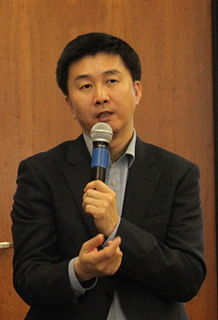 W
WKang Chol-hwan is a North Korean defector and author. As a child, he was imprisoned in the Yodok concentration camp for 10 years. After his release he fled the country, first to China and eventually to South Korea. He is the author, with Pierre Rigoulot, of The Aquariums of Pyongyang and worked as a staff writer specialized in North Korean affairs for The Chosun Ilbo. He is the founder and president of the North Korea Strategy Center.
 W
WKang Kyŏng-ae was a Korean writer, novelist and poet involved with the Feminist movement. She is also known by her penname Kang Gama.
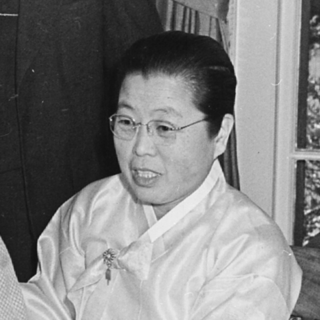 W
WHelen Kim was a South Korean politician, educator, social activist, and feminist. Her pen name was Wuwol(우월;又月). Kim is the founder of the daily Korean newspaper, The Korea Times.
 W
WKim Il-yeop or Kim Iryŏp, was a Korean writer, journalist, feminist activist, and Buddhist nun. Her given name was Kim Wonju. Her courtesy and dharma name was Iryeop.
 W
WKim Mi-wol is a multiply awarded modern writer of fiction born in Gangneung, South Korea.
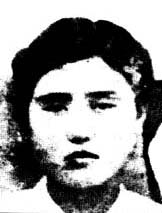 W
WKim Myeong-sun was a female Korean novelist and poet of the early 20th century.
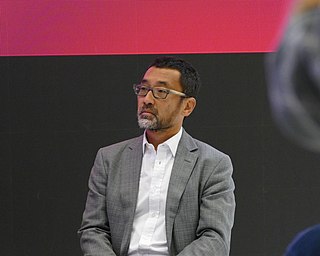 W
WPhillip Y. Kim is a Korean-American author of fiction and short stories. His first novel, an Asian financial thriller titled Nothing Gained, was published by Penguin Books in Australia and Asia in 2013. Phillip is the Business and Finance Director of the Asia Literary Review.
 W
WKim Sa-in, also known as Sa-in Kim is a South Korean poet, literary critic, professor of creative writing at Dongduk Women's University. Kim has been appointed as the 7th President of the LTI Korea in the Ministry of Culture, Sports and Tourism of South Korea, which is an Undersecretary-level position.
 W
WKim Si-seup (1435–1493) was a Korean scholar and author.
 W
WLee O-young is a South Korean critic and novelist. Although the romanized spelling of the hangul name "이어령" might be Yi O-ryŏng or Lee Eo-ryeong, Lee O-young is the author's preferred romanization according to the Literature Translation Institute of Korea.
 W
WMangong or Song Mangong was a Korean Buddhist monk, independence activist, scholar, poet, writer and philosopher, in the period of the Japanese Occupation of Korea. ManGong was born in Jeong Eup, Jeonbuk Province in 1871 and was ordained at the age of 14. Except for three years’ Zen teaching in Mahayeon Temple in Keumkang Mountain and serving shortly as Abbot of Magok Temple, he spent most of his life teaching Zen at Deoksung Mountain in Yesan, Chungnam Province. Mangong revitalized the Zen tradition of Korean Buddhism along with his teacher, Zen Master Kyongho.
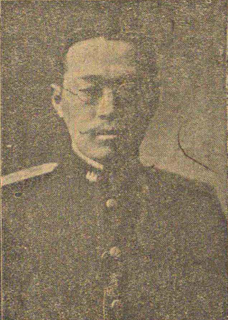 W
WMin Won-sik was a politician and journalist during the late Joseon Dynasty and the Japanese colonial era. He was an advocate for Korean political rights and autonomy. Also a noted writer and poet, he used the literary names of Chungam, Nankok, Handong, and Yangha.
 W
WNa Do-hyang was a Korean writer born in Seoul.
 W
WNa Hyeseok was a Korean feminist, poet, writer, painter, educator, and journalist. Her pen name was Jeongwol. She was a pioneering Korean feminist writer and painter. She was the first female professional painter and the first feminist writer in Korea. She created some of the earliest Western-style paintings in Korea, and published feminist novels and short stories. She became well known as a feminist because of her criticism of the marital institution in the early 20th century.
 W
WOh Jung-Hee (Korean: 오정희) is a South Korean writer.
 W
WPark Chong-hwa was an early-modern Korean poet and novelist.
 W
WPark In-hwan was a Korean poet and author.
 W
WPark Mok-wol was an influential Korean poet and academic.
 W
WSeo Jeong-in born December 20, 1936 is a South Korean writer.
 W
WShin Kyeong-nim is a South Korean writer who is known as a "poet of the people"
 W
WShin Yong-Mok is an award-winning South Korean poet.
 W
WSin Chaeho, or Shin Chae-ho (1880–1936), was a Korean independence activist, historian, anarchist, nationalist, and a founder of Korean ethnic nationalist historiography. He is held in high esteem in both North and South Korea. Two of his works, A New Reading of History, written in 1908, and The Early History of Joseon, published in 1931, are considered key works of nationalist historiography in modern Korea. He argued that modern Koreans and the people of Manchuria were of a single race which has an ancestral claim to both Korea and Manchuria, Shin also studied Korean mythology. During his exile in China, Shin joined the Eastern Anarchist Association and wrote anti-imperialist and pro-independence articles in various outlets; his anarchist activities lead to his arrest and subsequent death in prison, February 21, 1936.
 W
WYi In-seong is a South Korean modern novelist.
 W
WYi Kwang-su was a Korean writer and independence and nationalist activist. His pen names were Chunwon and Goju. Yi is most well known for his novel The Heartless, sometimes described as the first Korean novel. Yi Kwangsu was born Yi Bogyeong on February 1, 1892.
 W
WYi Seou, also spelled as Lee Seo-Woo, was a Korean Joseon Dynasty politician, Neo-Confucian scholar, and early silhak writer. He was a member of the Southerners political faction.
 W
WYi Won-rok, better known by his pen name Yi Yuksa, was a Korean poet and independence activist. As one of Korea's most famous poets, he and his works symbolize the spirit of the Korean anti-Japanese resistance of the 1930s and 1940s.